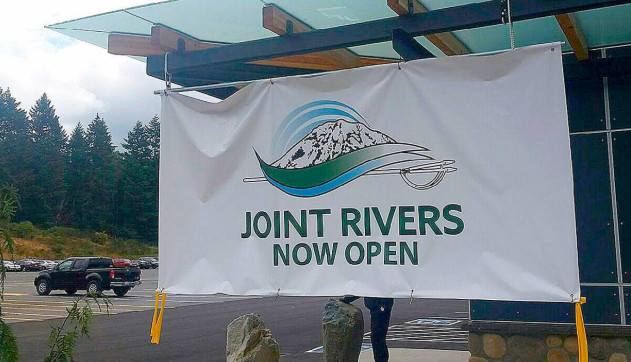Anne Arundel County is one step closer to getting its first medical marijuana dispensary after approving a permit application for a site just outside Annapolis.
Administrative Hearing Officer Douglas Clark Hollmann approved the application from Advanced Alternative Therapies LLC for the special exception needed to open a dispensary at 2029 West St. The building is currently home to a take-out pizza restaurant and a tattoo and body piercing shop.
In a decision dated Friday, Hollmann wrote that the potential for marijuana from the business being “resold for illegal purposes is remote.”
“This is not pot; it is a medical product that has been stigmatized because it is made from a plant that people in the 20th and 21th century decided is a dangerous drug,” Hollmann wrote.
The location had drawn criticism from nearby community members and officials in the city of Annapolis. Mayor Mike Pantelides said he has ordered his legal department to review the decision for a possible appeal.
“I think it was the wrong place to put a dispensary in Annapolis,” Pantelides said.
Alderwoman Rhonda Pindell Charles, D-Ward 3, presented opposition letters from the Greater Parole Community Association and a coalition of Ward 3 pastors at a hearing before Hollmann this month.
The alderwoman wrote in an email Friday that she was disappointed in the decision and reiterated her concerns about the closeness to Parole, a historically African-American majority neighborhood, a new elementary school set to open in September and churches.
She also raised the specter that legalized recreational marijuana sales could one day follow medical marijuana in Maryland, although no proposals for such have gained widespread support in the state legislature.
“So some have wondered and questioned: If one would take these same factors, but change the community to a community that is ‘less urbanized,’ then would this marijuana dispensary be located here?” she wrote.
Hollmann largely dismissed the community’s concerns in his decision, writing that the business should be not be viewed through the same lens as if it were a business that also sold for recreational use.
“Whether history will reverse public opinion about marijuana, like what happened with alcohol and prohibition, is not relevant to this case,” Hollmann wrote. “Smoking (or eating) cannabis for the purpose of getting high (or fat) may be dangerous or harmless but whatever one thinks about this subject has no bearing on whether a medical cannabis dispensary should be allowed on the facts of this case.”
Dispensaries are considered permitted uses within commercial and industrial zones in Anne Arundel, but they must meet certain conditions under the special exception process.
The West Street location would not be affected by county legislation passed this week tweaking those zoning rules. That bill specifies that medical marijuana dispensaries located north of Route 50 or north of the northeast shore of the South River are not allowed within 1,000 feet of a house or school building. Those restrictions do not apply elsewhere in the county.
The change, which passed unanimously, represents a tightening of the previous law, which banned dispensaries within 1,000 feet of homes and schools only if the business was located both north of Route 50 and east of the South River.
While the site of the Advanced Alternative Therapies dispensary falls within the new boundary lines, it will not be affected because the application was already in progress at the time the Council Council approved the changes.
Pantelides said while he understood the county’s decision to defer to the city at the time, it ultimately left a “void” that wasn’t addressed by the City Council prior to the business’ application.
The Republican mayor pointed to an editorial written by Pindell Charles where she argued that the county’s overarching law should still apply to the city.
“Nowhere in case law are there lot line prohibitions based upon jurisdictional boundaries,” she wrote. “If there were, it would run totally contrary to long-established case law.”
credit:capitalgazette.com













